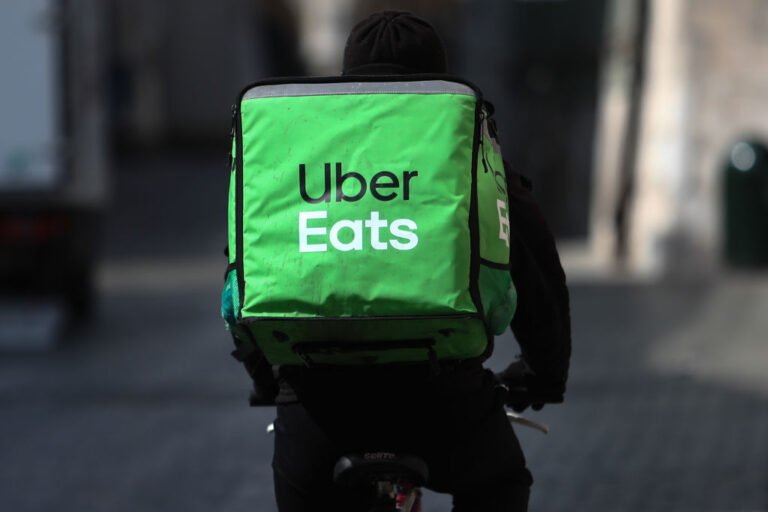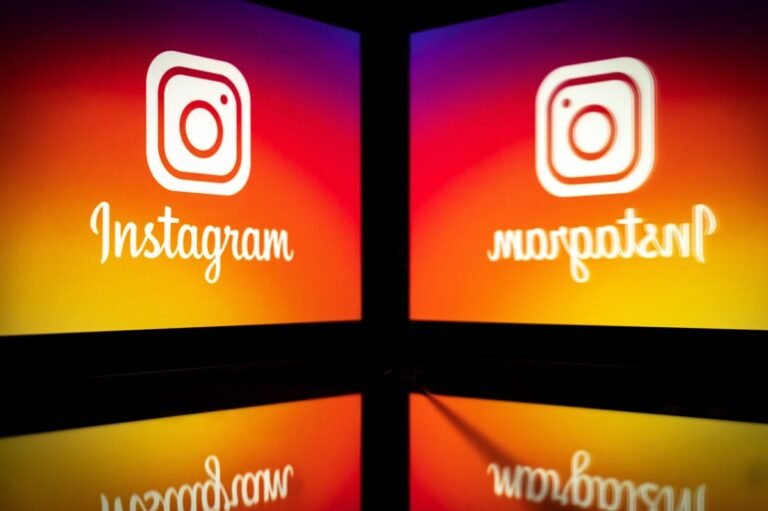
Uber Eats is adding a live location sharing capability to help couriers find customers in difficult-to-find locations, including public places such as campus courtyards, parks, and playgrounds.
Uber Eats is available in over 11,000 cities across six continents.
Uber Eats stops sharing the location once the order is delivered.
The company hopes its new live location sharing feature will help solve a major challenge that many couriers face, especially in the warmer months when people are spending more time outdoors, ordering food for birthdays and other events.
“We’re thrilled to bring location sharing to Uber Eats and help consumers ensure greater reliability with every delivery they receive,” Divya Dalapathi, Director of Product Management at Uber, said in a statement.

Anonymous social apps tend to appeal to younger users and are often used for bad behavior like bullying, harassment, and online abuse.
It seems every few years — and no matter how many times anonymous apps like these fail — someone, somewhere builds yet another anonymous social platform.
Yik Yik, in fact, is on its second life.
No matter how many times this trend is tried, standalone anonymous social apps aimed at consumers rarely lead to a sustainable business.
Yik Yak, Sidechat, Whisper, and Fizz were asked for comment using public email addresses published on their websites and in their terms of service.

Instagram has quietly added a secret emoji game that you can access in your DMs.
To access the hidden game, all you have to do is open up a DM chat, send an emoji, and then click on it.
The game saves your high score, so you can come back to it at any time to try to beat your previous high score.
Your high score is saved across your DMs, so you don’t have to go back to the first emoji that you sent when activating the game.
An Instagram spokesperson told TechCrunch in an email that the company is always working on new ways to make “Instagram feel more fun,” which is why it rolled out the game.

It has heavily invested in its supply chain infrastructure over the years, with a particular focus on reducing delivery times for grocery items.
Quick-commerce accounts for about 40% of the online grocery delivery category, the analysts said.
“Quick commerce with a potential TAM of ~$45 billion (~7% of the grocery market of $620 billion),” they wrote.
We estimate quick-commerce GMV to grow to $6.2 billion by 2025.”Indian news outlet Entrackr first reported some of the details of Flipkart’s instant commerce play Thursday.
We constantly work towards delivering a wide range of products to customers with speed,” a Flipkart spokesperson said.

The SEC voted on Wednesday to require public companies to report a portion of their greenhouse gas emissions and their exposure to risks from climate change.
While the new rules do not apply to privately held companies like startups, they do create opportunities for those focused on the carbon tracking, accounting, and management space.
Some, like Amazon, Vanguard, Ralph Lauren, and Chevron, supported Scope 3 disclosures; already, many public and private companies voluntarily track those emissions.
In recent years, a number of startups have turned to AI to automate and improve Scope 3 estimates.
In adopting the new rules, the SEC is playing catch-up with other large economies, including China and the EU, which both have greenhouse gas reporting requirements.

Spain’s data protection authority has ordered Worldcoin to temporarily stop collecting and processing personal data from the market.
Data protection authorities can also demand unlawful processing to stop, including temporarily if they are concerned people’s rights are at serious risk, as is happening here.
An investigation was opened by France’s data protection authority last year.
It also said then that it would be seeking to ascertain whether Worldcoin had carried out a data protection impact assessment.
In another set-back last year, Kenya’s data protection authority issued a ban on Worldcoin’s local processing.

Meta today is offering more details about how it plans to make its messaging apps, WhatsApp and Messenger, interoperable with third-party messaging services, as required by the new EU law, the Digital Markets Act (DMA).
In addition, Meta now says it will ask third parties to use the Signal protocol, though it may make exceptions to this in the future.
Meta’s messaging clients will download the encrypted media from the third-party messaging servers using a Meta proxy device, it notes.
But that solution will require third parties to agree to additional protections to keep Meta’s users safe from spam and scams.
In addition, Meta says that third-party providers will need to sign an agreement with Meta or WhatsApp before it will enable interoperability.

Doing so while complying with the growing number of child safety laws and regulations around the world is an almost insurmountable task.
Historically, game developers may have had to verify the child’s age or request ID to prove the player is not a kid.
But with k-ID, they could instead customize the game experience to be legally appropriate for a player of that age in that particular market.
Simply knowing this answer can help the game developer customize the experience for the child, teen or adult appropriately.
k-ID’s solution entered into early access in November 2023 with a handful of game publishers across platforms in markets including the U.S., Europe, Japan, Korea, and China.

Cultivated Biosciences, a Swiss biotechnology food startup says it has solved this with the development of its yeast cream, derived from a specific type of oleaginous yeast, that mimics the texture and mouthfeel of traditional cream.
This method is also non-GMO and is easier to scale, said Lucie Rein, chief commercial officer at Cultivated Biosciences.
Cultivated Biosciences is designing its end product to go into consumer products, for example, like coffee creamers, milk and ice cream.
We also replaced the whitening agents, so we actually replace everything, and we stay stable.”Over the past year, Cultivated Biosciences has worked on scaling.
Cultivated Biosciences is joining them, having raised another $5 million recently.

TikTok announced today that its revamped creator fund has increased total creator revenue by over 250% within the last six months.
The company says the fund, which launched a year ago and eventually replaced TikTok’s original $1 billion Creator Fund, is exiting beta in the coming weeks.
Since rolling out longer videos, TikTok says users are spending 50% of their time watching longer content, while viewership of longer videos has increased nearly 40% over the last six months.
When TikTok first launched the revamped fund, it estimated that creators would be able to make more than 20 times what they were previously earning on TikTok.
TikTok’s new creator fund seeks to appease creators and encourage them to post their longer videos on TikTok, instead of just YouTube.













